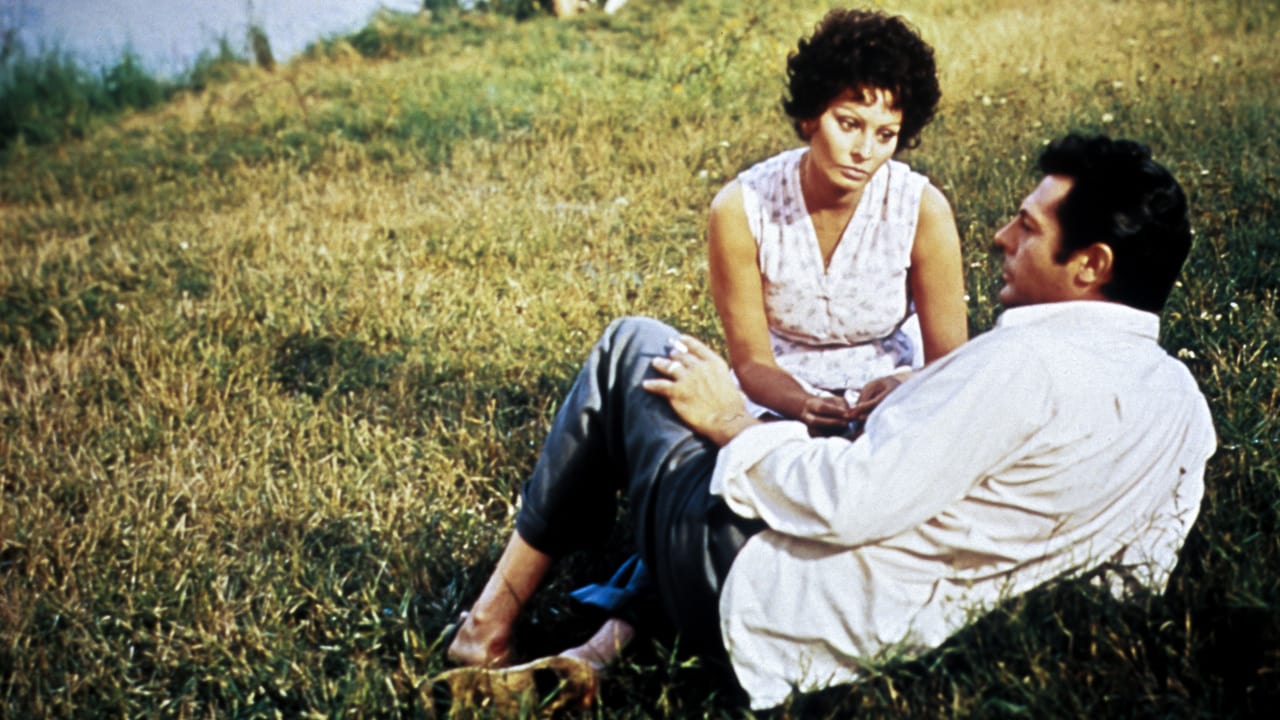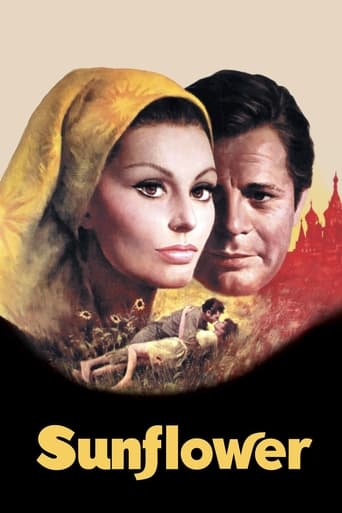

I Girasoli l'd watched for first time in 1985 on TV not entirely,today l re-watched this magnificent De Sica's movie, it's about love, loss and hope this feeling is showing along the movie,when Antonio and Giavanna get marry ans spent 10 day sharing love, but the war is about to came and he was sent to Russia,Giovanna hope that Antonio returns but even when the war is over he didn't appears....so she decides seeking for every place that he stood in the war....when finally she finds him is already married and have a daughter....this dramatic heartbreak romance is very hard to understand looking of woman's point of view, but not impossible to see how it really happen when Mascia explain how she finds and saves him....in war everybody has a sad story to tell in my opinion is that the matter....the war!!!Resume:First watch: 1985 / How many: 2 / Source: TV-DVD /Rating: 8.25
... View MoreSophia Loren is a Naples beauty who marries Marcello Mastroianni on the spur of the moment just before he goes off to World War II and spends years after it ends trying to find him. She ends up in Russia where what she discovers breaks her heart, leads her into a new life, but it is not over yet.This personal story of war could have happened to thousands of women (at least) and is told tenderly with a beautiful musical score by Henry Mancini and with sincere performances. A few of the details are rather far-fetched or unresolved, such as when Marcello Mastroianni comes back to visit his aging mother and never does. Also, how Loren initially finds Loren is really a bit beyond belief. What makes the film special is that it reminds us that no matter what side of the war one might be on, there are always heartbreaks, even if it comes to someone inside the enemy camp.
... View MoreThere are few scenes more moving or more powerful than the scene where Sophia meets her husband in Russia.The scene is at a train station: he's on the arriving train and she's waiting on the platform. A huge number of people get off the train and she's looking at everyone through the chaos of moving bodies. She doesn't really expect to find him, but hope is still alive.She sees him through the throng, he sees her.The wordless communication between them as she gets on the train to leave and he stays on the platform watching her go is nothing less than thrilling. It's a great cinematic moment - a great moment of acting for Loren.It is, perhaps, the single scene for which I shall always remember her.
... View MoreYou know the plot.Sunflower was Vittorio De Sica's last film. It was dismissed by the critics as hopelessly maudlin melodrama. But anyone who cares enough to be reading this no doubt knows the humanity he crafted into every frame, and the beauty and sadness of life it evokes.Henry Mancini's theme song is, IMVHO, the very best he ever wrote. I'm reduced to tears every time I hear it. Yet it seems Mancini himself treated as a lesser child. His daughter recorded it to lyrics better left forgotten.
... View More